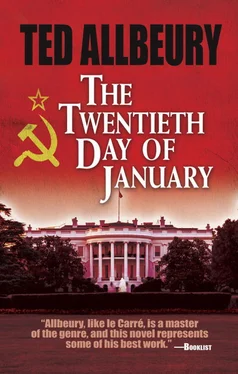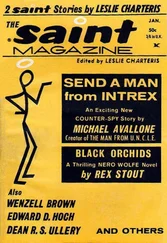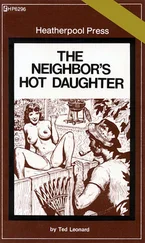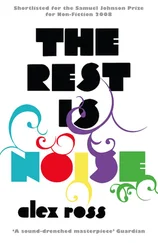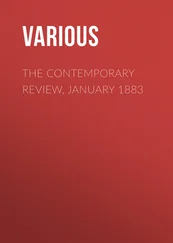Nolan and MacKay spent most of the morning reading the transcript of Kleppe’s notebooks. They made a long list of names for investigation and a short list of prime targets. The flow of money from Kleppe exceeded what even the most successful diamond-selling operator could have supported, but Nolan put through an urgent request to IRS for copies of Kleppe’s returns for the last six years.
They took the shuttle to Washington and met with Morton Harper in his office at eight o’clock in the evening. MacKay felt the tension of the other two men and was glad that he was almost a passenger, a neutral observer.
Morton Harper wore a dinner jacket, and his black bowtie was undone, the two ends trailing down the front of his white shirt as he leaned with one elbow on the top of a metal filing-cabinet.
“I’ve no idea how we shall be received by the Chief Justice or Mr. Speaker. They have no inkling of what I shall be telling them. And I have no idea as to what their reaction will be. Elliot was a Republican appointment. There was almost no opposition from any quarter. Bethel is a Republican too. An entirely political animal whose natural habitat is Capitol Hill. He isn’t going to like it. Neither of them can order us to stop the investigation, but by consulting them I have almost given them some sort of power of veto. I am convinced, now, that our suspicions are justified. And almost convinced that they are correct. We really had no choice but to pursue the facts, but I would not be happy to go further without advice. If you are asked questions you will answer without reservation no matter what their attitudes may be.”
He looked at his watch.
“My driver will take me in my car. You two travel together.”
Chief Justice Elliot lived just outside Aurora Heights in a house that he had bought when he was first married. Its white boards shone in the moonlight and it looked, with the orange lights from its windows, like an advertisement for gracious living. In fact it was primitive compared with most dignitaries’ homes in Washington, and he would have been lucky to get $80,000 for it on the open market. But as he had paid only $11,000 he wouldn’t have worried.
When they were shown in he was sitting at a big round table with Sam Bethel, the tubby, white-haired Speaker of the House. He waved them to the seats round the table.
“Help yourselves to drinks, gentlemen.”
Only Morton Harper went over to the sideboard, and he poured himself a generous neat whisky. He sighed audibly but unconsciously as he sat down at the table.
“Now, I understand you’ve got something you want to talk about with Sam and myself. You were a touch coy on the telephone, Morton, so we’re expecting the worst.”
Morton looked up sharply, and Nolan saw his fist clench as it lay on the table.
“Well, I’m not going to disappoint you on that score, judge. And I know you’ll believe me when I say that I find this the most difficult meeting that I have ever attended.” He looked at both men in turn. “I have rehearsed a dozen times my approach to this problem. I have sought for the right sentence that would lead me into talking with you gentlemen. And there isn’t such a sentence. At least there is no such sentence that I can bear to utter.” He thrust back his heavy frame in the chair until it creaked. “Nevertheless, utter it I must. We seek advice, either formally or informally, on a grave matter. We have reason to believe that Logan Powell, the President-Elect is, deliberately or accidentally, a traitor, under the influence of the Soviet Union.
Two lesser men would have given some display of emotion; disbelief, curiosity to hear more, even fear or anger. Both men remained impassive.
“May I go on, sir?”
Elliot nodded. “Of course.”
Morton went carefully through all that had been uncovered, and when he had finished he sat silently awaiting a response. Elliot didn’t even exchange a glance with the Speaker. He looked straight at Morton Harper.
“At least half of what you have told us, Mr. Director, would not survive in any United States court. You realize that, I’m sure.”
“I was relying, to some extent, sir, on the definitions for impeachment established by the House Committee.”
Elliot nodded and closed his eyes, trying to recall the precise words. “‘It is not controlling whether treason and bribery are criminal.’ Is that it?”
“Yes, sir.”
“What do you say, Sam?”
Bethel hunched his shoulders and looked at the two CIA men, with the look he usually gave to the more obstructive filibusterers.
“I’m wondering, Arthur, if these men are not guilty themselves of treason.”
His flushed, red, bull-dog face glanced at them in turn.
“Do you people realize what you have been doing? Do you, Harper? You and your underlings have been conducting an investigation of the next President of the United States. On your own account.” His hand slammed down on the table. “With no permission from any part of the administration you take it upon yourselves to ferret about like goddamn journalists into the lives of important citizens. And you bring your scurrilous offerings here like dogs with a bone. You must be out of your minds.”
“Three people have been murdered sir, to prevent us bringing more concrete evidence.”
“That is not the point, Harper. If you had a table full of evidence, concrete evidence, that would still not be the point. Where does your authority lie to do this? Why did you not do your talking before you started? Why did you not talk to the Secretary of State, or me, or somebody, for God’s sake?”
Morton spoke very quietly. “There were two problems in the beginning, Mr. Speaker. Our evidence then, in terms of a court of law, was non-existent, but our training, our instincts, told us that there was cause for doubt. When we considered who we should consult we were uncertain about who we could trust. We also hoped that a superficial check would prove our fears groundless.”
“Don’t give me that crap, Harper. You and your people have obviously gone at this in your usual style. Heads down and to hell with realities. If you didn’t trust Elliot and me then , why trust us now?”
Harper looked down at his plump white hands. “There was a point, sir, beyond which I was not prepared to go. I have no doubt in my mind now, Mr. Speaker, that what I merely suspected is unfortunately true. At this point we should have to investigate some of the principals involved. And that I was not prepared to do without hearing your and the Chief Justice’s advice.”
“So now I’m trusted, eh?”
“No, sir. At this point I trust your office.”
“And if we instruct you to close this inquiry, what then?”
“I shall report to the incumbent President, sir.”
“Why now? Why not before?”
“Because when we started we had sixty-six days before the inauguration. Now we have roughly fifty days left. After January twenty, what is difficult now would be almost unthinkable then. As unthinkable as doing nothing.”
Elliot had listened without interruption, his eyes going from face to face as they spoke. Then he nodded to Harper.
“I suggest you gentlemen retire to my smoking-room. That’s the door. We’ll chat, Mr. Speaker and I, and then we will all talk again.”
They sat for twenty minutes in the book-lined smoking-room before Elliot opened the door and stuck his head in to call them back.
They sat down in the same seats that they had sat in before, and waited until Elliot checked the words on a sheet of paper. He looked up briskly.
“Well, gentlemen, you came to us for advice, and Mr. Speaker and I have discussed the information you put before us. Neither of us is inclined to approve the action taken to initiate this investigation. You chose the wrong office-holders if it was approval that you sought. However, we have borne in mind that you have revealed a state of affairs that many would consider to have justified your initiative. And we both have no doubt that with this information you could have approached others in the administration, or in the House, who would have been enthusiastic about your efforts. Nevertheless, you came to us and you must have known that we were not likely to feel that the end justified the means.
Читать дальше
